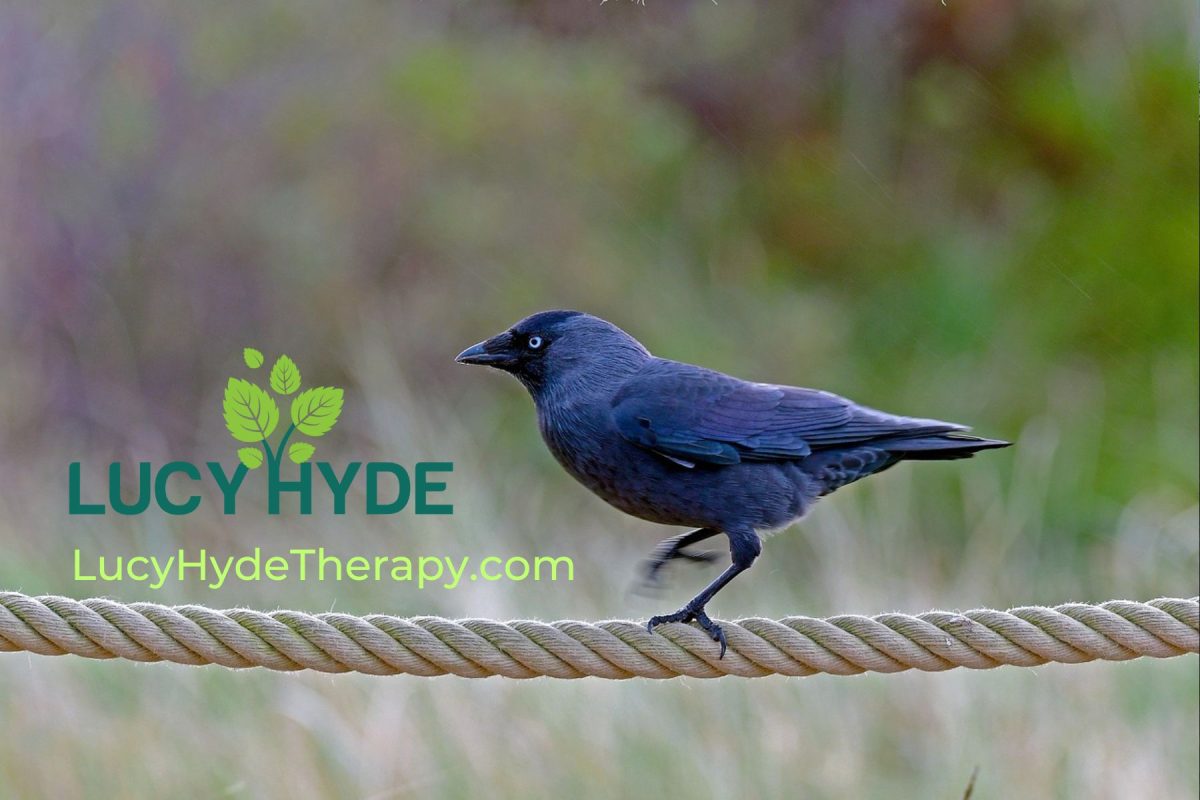How to find your balance in life

Work / life balance, or life balance, is something that’s often referred to as necessary to a healthy life. But how do we know what the ‘right’ balance is – what’s the formula?
This is something I’ve been thinking of a lot recently, in a year that has felt very busy with activities – both work and personal. As I reflected on a period where weekends were taken up with family visits, or a gathering of Focusing colleagues, or friends visiting, I noticed I was telling myself that I’ve ‘got the balance wrong’, even where everything I was doing was something I wanted to do.
Also, no matter how many pithy memes you see telling you that no one lies on their deathbed wishing that they’d done more dusting, the reality is that there are some tasks that we need to keep on top of in order for life to roll on at least relatively smoothly.

What are essential life tasks?
There’s no one formula that works for everyone. You might find batch-cooking is essential to support their healthy eating habits through a busy work week. Or maybe you need to look out the next day’s outfit before you go to bed, to start the day feeling in control. For me, a couple of hours spent baking is time well spent, as knowing I’ve got a bit of cake in the tin to have in my mid-morning coffee break gives me a sense of stability and comfort, when I have a full day of therapy clients.
And it’s the same with so much of daily, weekly, even monthly life.
Do I need to know if I’m an introvert or an extrovert?
In the global north, we tend to think of things in binary terms (which ultimately leads to conflict and extremism – ‘I’m right, you’re wrong’ – but that’s for another day). On a micro scale this affects us personally, in the way we think about and describe ourselves. Gay or straight? Right wing or left wing? Autistic or allistic? Cat person or dog person? We’re taught to categorise people, to put them into the ‘correct box’, and in doing so we trap ourselves in boxes too.
An example of this is the introvert / extrovert label. For a while there was a craze for people to define themselves as one or the other and for organisations to try and categorise employees to make the most productive combinations (I remember you, Myers-Briggs ). My 20 yr-old dictionary defines ‘extrovert’ as ‘person interested mainly in the world external to him/herself……hence (loosely) a sociable, outgoing, lively person.’ ‘Introvert’ is ‘a person interested mainly in his or her own inner states and processes rather than the outside world……….loosely, a shy or reflective person.’

Check out one of the myriad online quizzes (just do a search for ‘am I extrovert?’) and in reality you may well fit somewhere in between extrovert and introvert. Perhaps more accurately, whether we tend towards one or the other in a situation will be influenced by the day we’re having, how much time we’ve already spent engaged in social interaction, and what’s going on in our lives more generally.
Labels – good or bad?
It’s tempting to think that finding the right label for ourselves will help us find where we belong, that there’ll be a formula that will work for us if we just figure out which tribe we’re in. It’s as if we’re allowed to have the needs that we naturally have – but only if we can justify it with a diagnosis. This says more about the conditioning we’re subjected to in our upbringing, our culture and society generally, than about whether our needs are OK.
I encounter this sometimes with people who are wondering if they’re autistic because of sensitivity to noise and visual disturbance, or because they find social settings confusing and exhausting. Although an autism diagnosis won’t make those environments any easier to handle, for some people having a diagnosis can make it easier to give themselves permission to find such situations difficult – and perhaps to justify it to others.
But – what if we simply give ourselves permission to listen to our needs – whatever they are?

Are my needs normal?
We can be so influenced by what others think about our needs, which, if you’re a people-pleaser, can be uncomfortable. (In Scotland, the age-old classic is when you’re in the pub and someone wants you to have a drink when you’re not in the mood for, or simply prefer not to drink, alcohol.)
But what others think is on them, not on you – and although it can be uncomfortable when you push back, remember the first time is the hardest. It does get easier because, often, people are actually understanding about the needs of others if they’re pushed out of their own autopilot assumptions.
And those people who continue to just not hear it, no matter how many times you push back? You’ve got the opportunity then to consider whether you really want them around you, and/or to bring some choice into how much you let yourself be affected (I’m thinking about family relationships that you really wouldn’t choose but aren’t quite ready to kick out the door yet).
Anyway, back to balance – it’s an individual thing, that you can’t necessarily lift someone else’s formula for. And it changes depending on what’s going on in your life, and even on what stage in life you’re in.

Too much or too little social interaction?
Using myself as an illustration, for years I thought of myself as a ‘people person’. I come from a big family, I traditionally worked in jobs where I was dealing with people all day long. I felt OK going into settings where I didn’t know everyone, and making the appropriate small talk.
It’s interesting, looking back, to wonder how much ‘what I’m good at’ might have become conflated with ‘what I need’. In recent years I’ve allowed myself to step back a little in social situations and wonder how much the outgoing me was masking and/or trying to compensate for feeling uncomfortable, by ‘doing the right thing’ socially.
As a counsellor, I now work in a role where I still spend a fair amount of time with people – but in a one-to-one relationship that is focused on them. The intensity of this work means that at times I feel I need to withdraw from people completely – yet doing so has sometimes led to my feeling isolated and losing touch with myself as a living, breathing organism that is part of a larger ecosystem.
Lately, I’ve come to better understand that activities that invite me into a space with other people, but without intense verbal engagement, can bring that much-needed nourishment that comes from feeling myself as part of a community. Where I get this from currently is in community rowing on the sea, singing in a choir, joining in Focusing circles. In these spaces I can usually enjoy connection with others and also be in touch with my own needs. I’m recognising that being alongside others in an unspoken shared experience is important to my wellbeing.

Changing your mind can be an act of self-care
As well as being able to say ‘No’ to things outright, we might also need to say ‘I’ve changed my mind’ or ‘I want to, but I can’t’. This can be particularly difficult if we’re faced with a choice between two things that feel as if they would be equally nourishing to us – but knowing that if I did both I’d feel overwhelmed means that changing my mind on one is necessary, even if it means flipping a coin.
What’s the formula for a good balance?
I’d love to be able to finish this piece with a pithy step by step process for getting life balance ‘right’. However – that would be at odds with the whole quality feel of this topic, which is about balance not being one thing, but a state of flux that requires you to tune in to yourself from time to time, to sense what needs to be tweaked or adjusted.
Here’s a few things that might help:
- Develop a self-awareness practice: If you can find a practice or routine or habit that helps you to check in with yourself and listen to what your needs are (for me it’s Inner Relationship Focusing) then you’re more likely to be able to respond when your circumstances, life situation or environment change.
- Have a go-to list: If you can keep a list – mental or physical – of the things that you know help you re-find your equilibrium, this can be a starting point, a helpful prompt when you notice you feel ‘off’, of what you might need.
- Drop the label: If you can allow yourself to let go of some of the self-analysis and labels by which you identify yourself (‘people person’, ‘introvert’) this could allow you to be more understanding and responsive to your needs in the moment if they don’t fit what you see as your usual pattern. Sometimes these labels are attached to us by others – you don’t have to let them.
- Connect to the world around you: Things that remind you that you’re a living creature that’s part of a bigger world always help. Going for a walk where there’s something green to see. Paddling or swimming. Talking to someone who you feel safe with. Focusing on the sensation of your breath flowing in and out.

And finally – remember that balance isn’t a fixed point to ‘get right’. Finding balance is a dynamic process.
If reading this has resonated with you, but you don’t know where to start, get in touch. Talking to someone who’s not involved in your life can help you get a bit of distance to understand why you might be feeling that something needs to change – and counselling can help you take the steps to change.
